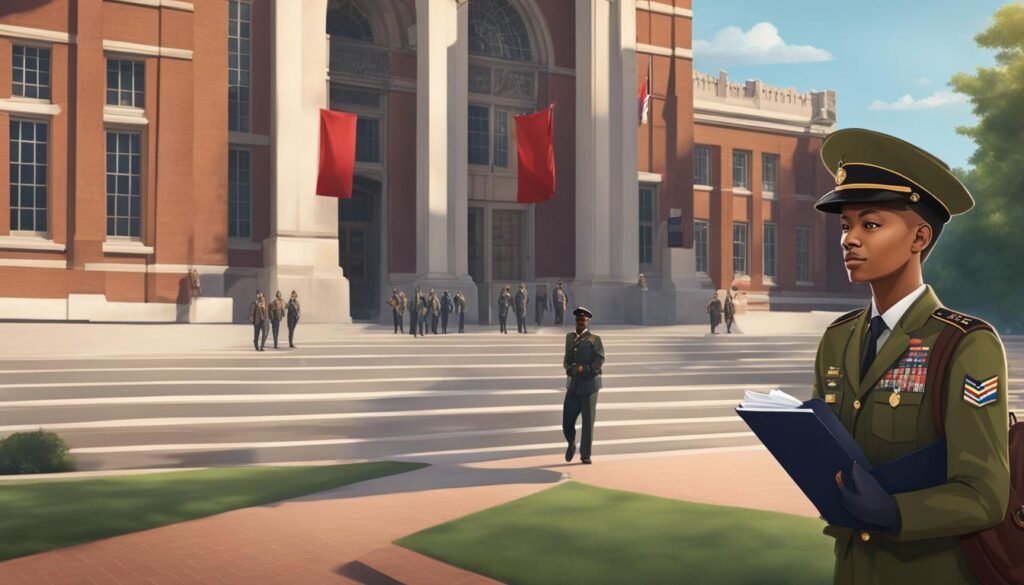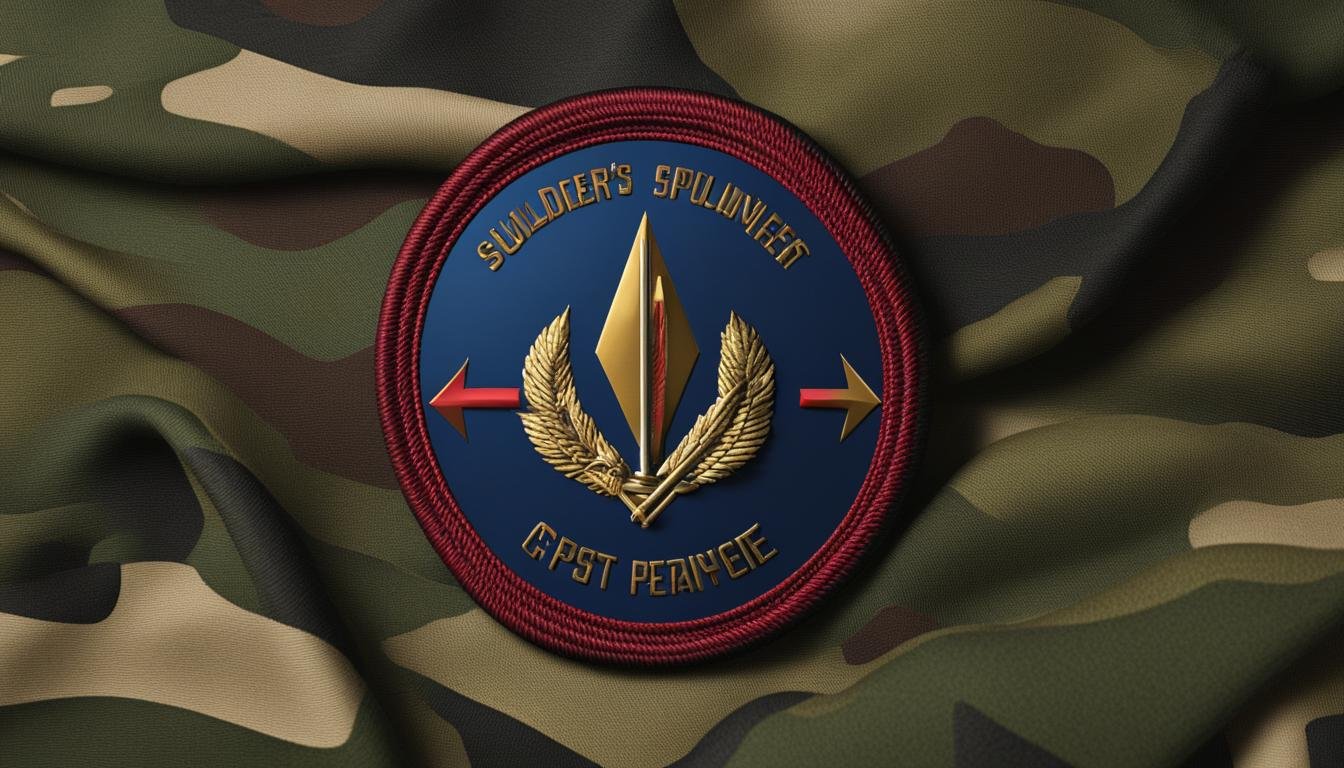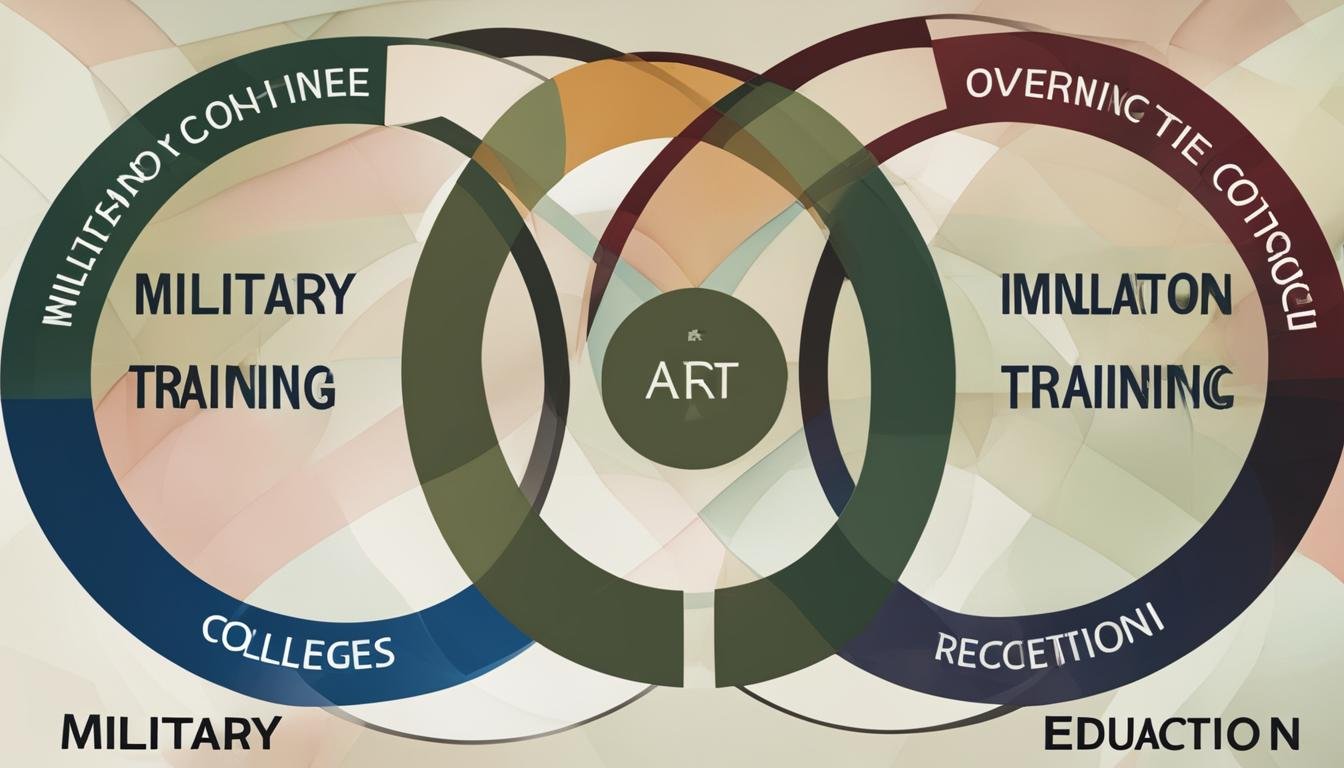Transferring military credits to college can be a valuable opportunity for veterans to leverage their military experience and educational benefits. However, the process requires specific documentation and guidelines to ensure a smooth credit evaluation. In this section, we will explore the documentation needed for military credit transfer, including the military credit transfer requirements, process, and guidelines.
Key Takeaways:
- Transferring military credits to college requires proper documentation.
- K-State evaluates over 300 military transcripts annually.
- Joint Service Transcripts (JSTs) must be submitted for evaluation.
- Evaluation of credit is a two-step process based on ACE guidelines.
- Not all courses and credits are eligible for transfer.
Tips for Pursuing a Master’s Degree After Military Service

If you’re a veteran considering pursuing a master’s degree after military service, there are several important factors to keep in mind. The transition from military life to academia can be challenging, but with careful planning and support, you can successfully navigate this new phase of your education and career.
1. Set Clear Goals and Plan Ahead
Before embarking on your master’s degree journey, take the time to define your goals and determine the career path you wish to pursue. By having a clear end goal in mind, you can identify the most suitable degree programs that align with your interests and strengths.
Additionally, backward planning can be a useful strategy. Start by identifying the academic institutions that offer programs relevant to your career goals. Research their admission requirements, course offerings, and any specific program features that may appeal to you, such as military discounts or robust veteran support groups.
2. Leverage Your Military Experience and Benefits
One of the advantages of pursuing a master’s degree after military service is the opportunity to apply your education and experience to your academic journey. Many universities recognize the value of military training and offer credit for relevant coursework or military occupational specialties.
Make sure to organize your military training certificates and other pertinent paperwork to facilitate the conversion of your military experience into college credit. Reach out to admissions counselors at your chosen institutions for guidance on the application process and to explore any available resources tailored to veterans.
“The transition from military life to academia can be challenging, but with careful planning and support, you can successfully navigate this new phase of your education and career.”
3. Utilize Support Services
As you embark on your master’s degree journey, consider seeking support from various resources available to veterans. Vocational rehabilitation counselors, for example, can help you navigate the education system and provide guidance on career planning.
Additionally, veteran support groups can offer a valuable network of peers who understand the unique challenges faced by military personnel transitioning to civilian life. These groups can provide emotional support, share experiences, and offer insights into available resources and scholarships.
Table: Top Master’s Degree Programs for Veterans
| Degree Program | University | Military Discounts | Veteran Support Services |
|---|---|---|---|
| Master of Business Administration (MBA) | XYZ University | 20% tuition discount for veterans | Veteran career counseling and mentorship programs |
| Master of Social Work (MSW) | ABC University | Waived application fee for veterans | Veteran-specific support groups and workshops |
| Master of Science in Nursing (MSN) | 123 University | VA funding for eligible veterans | Veteran-focused clinical rotations and practicum opportunities |
How Can I Use Military Experience to Transfer Credit?
When looking to transfer military credits to a civilian college, many individuals seek out military credit transfer stories for guidance. By understanding the experiences of others who have successfully navigated this process, former service members can gain valuable insight into how to leverage their military experience for academic credit.
Obtaining and utilizing the Joint Services Transcript (JST)
The Joint Services Transcript (JST) is an invaluable tool for converting your military experience into civilian credit. It provides documented evidence of your professional military education, training, and occupation experiences, allowing potential employers to understand the value you bring to the table. Additionally, academic counselors can assess your skills and help you leverage your military background in pursuing further education.
One of the greatest benefits of the JST is the time and cost savings it offers. By awarding academic credits for your military experience, you can expedite your educational journey and potentially reduce tuition expenses. To access your JST, eligible military members can register for an account and obtain their transcripts. The process is quick and straightforward.
Once you have your JST, it’s crucial to request official transcripts and have them sent to your desired institutions. This is typically done at no cost to you. If you are an Air Force member, it’s important to contact the Community College of the Air Force for transcript assistance. With your JST in hand, you can confidently convert your military experience into civilian terms and secure the college credit you deserve.
Whether you’re seeking to advance your career or pursue higher education, the Joint Services Transcript is an essential resource. It not only showcases your accomplishments but also serves as a bridge between your military background and the civilian world. Make the most of your military experience by utilizing the JST to unlock new opportunities and reach your goals.



